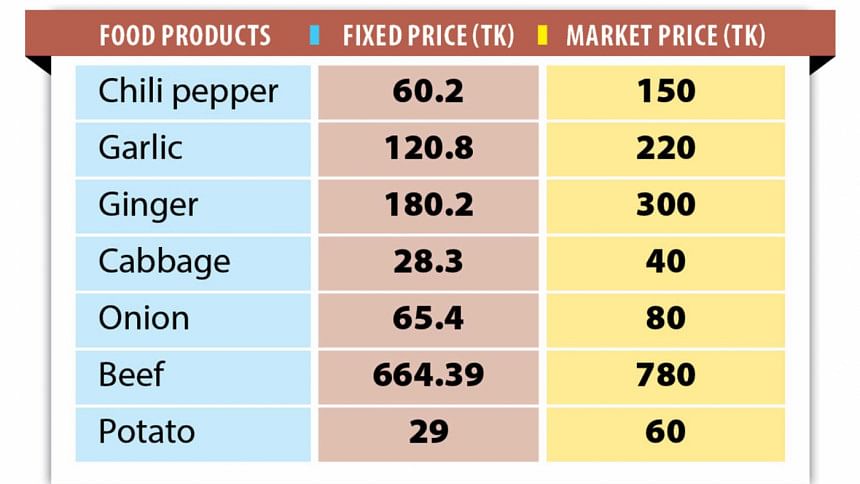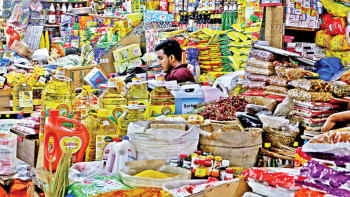‘Why fix prices if you can’t enforce it’

The government efforts to control rising commodity prices by setting fixed rates are failing, as essential items are being sold at much higher prices in Dhaka's major kitchen markets.
Despite the Department of Agriculture Marketing (DAM) setting fair prices for 29 products on March 15, consumers are still paying exorbitant prices for daily essentials. With Eid-ul-Azha approaching, prices have soared further.
During recent visits to Karwan Bazar, Kathalbagan, and Malibagh markets, traders were found openly flouting government-mandated rates.
Take the case of potato for example. Although the production cost of this vegetable is Tk 14 per kg and the retail price set by the government is Tk 29 per kg, potatoes were selling for Tk 60 per kg at Karwan Bazar.
Hamidul Islam, a private employee, managed to bargain the price down to Tk 55 per kg but still paid almost double the fixed price.
"Four days ago, I purchased potatoes at Tk 48-49 per kg. Prices have only soared since," Hamidul said.
Traders blamed higher wholesale costs and lack of supply. They said selling at government fixed rates would incur losses.
The price disparities are even more noticeable for other essential items.
Local garlic is being sold at Tk 220 per kg, 82.2 percent higher than the fixed rate of Tk 120.80. Ginger sells for Tk 300 per kg instead of Tk 180.20 (66.5 percent increase), chilli for Tk 150 against Tk 60.20 (149.2 percent increase), and cabbage for Tk 40 compared to Tk 28.30 (41.3 percent increase).
Other items like beef, lentil, chicken, and onions have also witnessed double-digit price hikes.
Although the government fixed the production cost of beef at Tk 588 per kg with a Tk 664 retail ceiling, it sells for Tk 780 at Karwan Bazar, nearly 18 percent higher.
"It's been three months since they fixed rates, but we see no intent to actually implement the directives on the ground," rued Shanaj Begum, a homemaker. "If they won't enforce the prices, why fix them at all? We are ultimately suffering for their failure and indecision."
Ghulam Rahman, president of the Consumers Association of Bangladesh, criticised the government's strategy, saying, "Commodity prices depend on market dynamics like production costs and the demand-supply chain. Fixed rates alone cannot control these unless by effective monitoring."
Masud Karim, director general of DAM, said, "Our directives are not fully implemented on the ground. Sellers don't follow them. We try to ensure they don't collect excess profits. We don't want to destabilise markets by any unwarranted intervention."

 For all latest news, follow The Daily Star's Google News channel.
For all latest news, follow The Daily Star's Google News channel. 









Comments